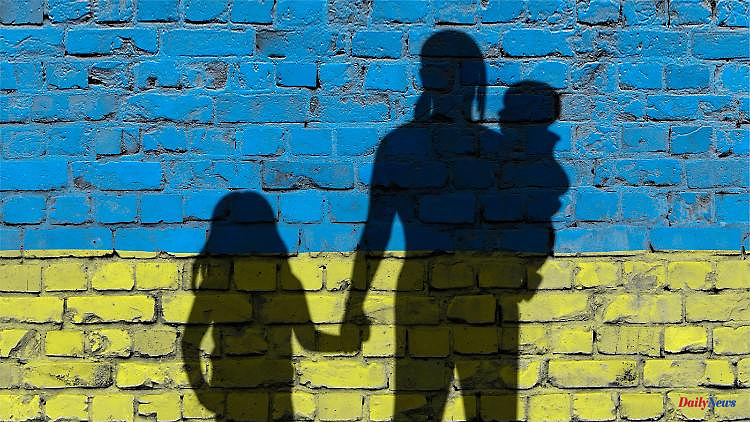Kyiv refers to surveys of EU citizens who say that 70 percent support Ukraine's accession. Nevertheless, many governments are skeptical as to whether the country meets the requirements. Germany and France are also among the brakemen. Brussels will make the decision in a few days.
With her renewed visit to Kyiv, EU Commission President Ursula von der Leyen is sending a signal: Brussels is taking Ukraine's EU accession efforts seriously. An assessment by the EU Commission on the question of whether Ukraine can become an official candidate country is expected shortly. But EU member states are deeply divided on this issue. Germany and France, among others, are regarded as skeptics.
"Ukraine is part of the European family": With these words, during her previous visit to Kyiv on April 8, von der Leyen signaled her authority's positive attitude towards Ukraine's application for membership. The official assessment of the EU Commission on the membership applications from Kiev, Georgia and Moldova is now expected in the coming days. At their summit meeting on June 23rd and 24th, the EU heads of state and government are likely to decide whether Ukraine will be granted EU accession candidate status.
Ukrainian President Volodymyr Zelenskyy appealed again on Friday to EU member states to grant his country candidate status. Ukraine must be "taken out of the gray area," he demanded in a video speech. The EU has the opportunity to prove "that the words about the membership of the Ukrainian people in the European family were not spoken to the wind".
Zelenskyj referred to polls according to which 71 percent of Europeans consider Ukraine to be part of Europe. "Then why are there still political skeptics who hesitate to allow us to join the European Union?"
Official candidate status is a prerequisite for the start of accession negotiations between Ukraine and the EU, which could drag on for decades. Albania, North Macedonia, Serbia, Montenegro and Turkey currently have official EU candidate status. The case of Ukraine is highly controversial in the EU.
The Ukrainian request is supported primarily by Eastern European countries, with the Netherlands and Denmark being the most explicit skeptics. But Germany and France, which will hold the EU Council Presidency until the end of the month, have also been extremely cautious on the issue so far. Italy's Prime Minister Mario Draghi even declared at the end of May that "almost all major EU members" were against candidate status for Ukraine - "with the exception of Italy".
Opponents of Ukraine joining the EU point to the state of war in the country as well as problems with corruption and unrealized reforms. "We must not lower the accession requirements in the EU. Otherwise we will kill the EU," warns a diplomatic source from one of the hesitant countries. Diplomatic circles in Brussels also say that accession negotiations with Ukraine are currently "difficult to imagine". However, intensive discussions are being held between the member states about how "the right signal" can be sent in view of the Russian war against Ukraine.
It would be possible for the EU summit at the end of June to give Ukraine accession candidate status, but with conditions attached. Expert François Heisbourg says he expects "intricate formulations and promises" at the summit. In Berlin and Paris, the political heavyweights in the EU, Ukraine's application for membership does not arouse "any enthusiasm," he emphasizes.
Other scholars warn of the consequences of a negative reaction to Ukraine's ambitions. "If the EU Council does not make a positive decision at the end of June, it would be very demoralizing for Ukraine and those member states that see Ukraine's accession to the EU as a crucial geopolitical necessity," writes Estonian political expert Krisi Raik on Twitter.












